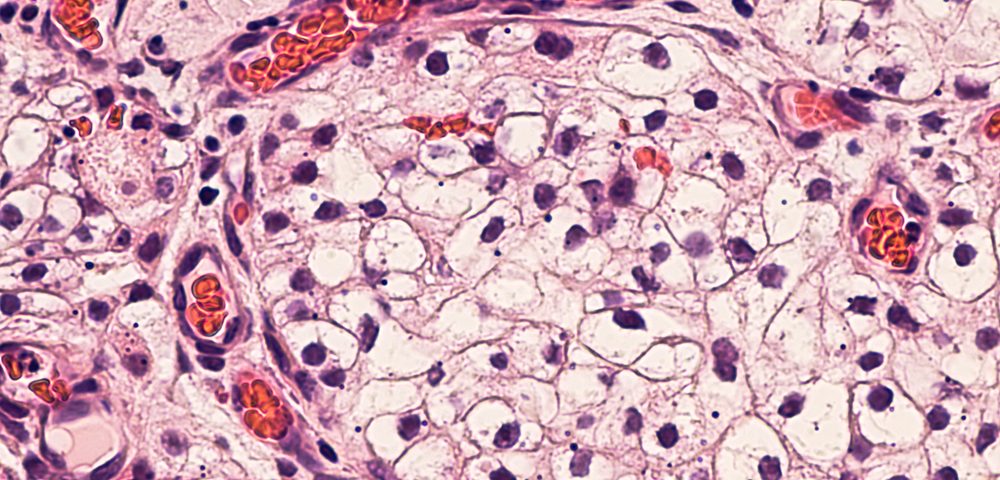The lack of a specific protein, MUC4, may be a valuable biomarker in distinguishing sarcomatoid mesothelioma from lung sarcomatoid carcinoma, a disease for which it is often mistaken, according to a new study.
The study, published in the journal Modern Pathology, is titled “MUC4, A Novel Immunohistochemical Marker Identified By Gene Expression Profiling, Differentiates Pleural Sarcomatoid Mesothelioma From Lung Sarcomatoid Carcinoma.”
Sarcomatoid mesothelioma is a very aggressive subtype of malignant pleural mesothelioma (MPM). Biomarkers, such as the proteins D2-40 and calretinin, are commonly used to diagnose this condition, but their sensitivity and specificity are not sufficiently high to distinguish it easily from sarcomatoid carcinoma, a disease with similar lung tissue features.
For this reason, more specific biomarkers are needed to aid in a diagnosis.
Researchers acquired tissue samples of sarcomatoid mesothelioma (29 samples) and lung sarcomatoid carcinoma (31 samples), and employed genetic profiling analyses to look for markers that could help distinguish both diseases.
They found that 2,099 genes were differently expressed between samples of the two conditions. One was the protein MUC4, which was found in 72 percent of lung sarcomatoid carcinoma cell samples, but was not expressed in any of the sarcomatoid mesothelioma samples.
MUC4’s presence also distinguished between the diseases with a sensitivity of 100 percent, a specificity of 72 percent, and an accuracy rate of 87 percent, higher than any of the current and commonly used markers.
To increase the specificity of MUC4 analysis, researchers tested this protein with other markers, such as TTF-1, p40, and Claudin-4.
They found that the combination of MUC4, TTF-1, and p40 was present in most lung sarcomatoid carcinoma cases (26 out of 29 samples, 90 percent specificity) but in none of the sarcomatoid mesothelioma cases (100 percent sensitivity). Similarly, MUC4 together with Claudin-4 were found in a majority of lung sarcomatoid carcinoma samples (24 out of 29, 83 percent specificity), but in no sarcomatoid mesothelioma samples.
These results showed that the combined absence of these proteins may help doctors to better diagnose sarcomatoid mesothelioma.
“[W]e identified a novel … marker MUC4 that differentiates sarcomatoid mesothelioma from lung sarcomatoid carcinoma by applying whole gene expression analysis,” the researchers wrote. “The combination of MUC4 with TTF-1/p40 and Claudin-4 improved the sensitivity and specificity for differential diagnosis.
“Therefore, we propose including MUC4 as an additional negative marker to the … marker panel to differentiate sarcomatoid mesothelioma from lung sarcomatoid carcinoma.”


